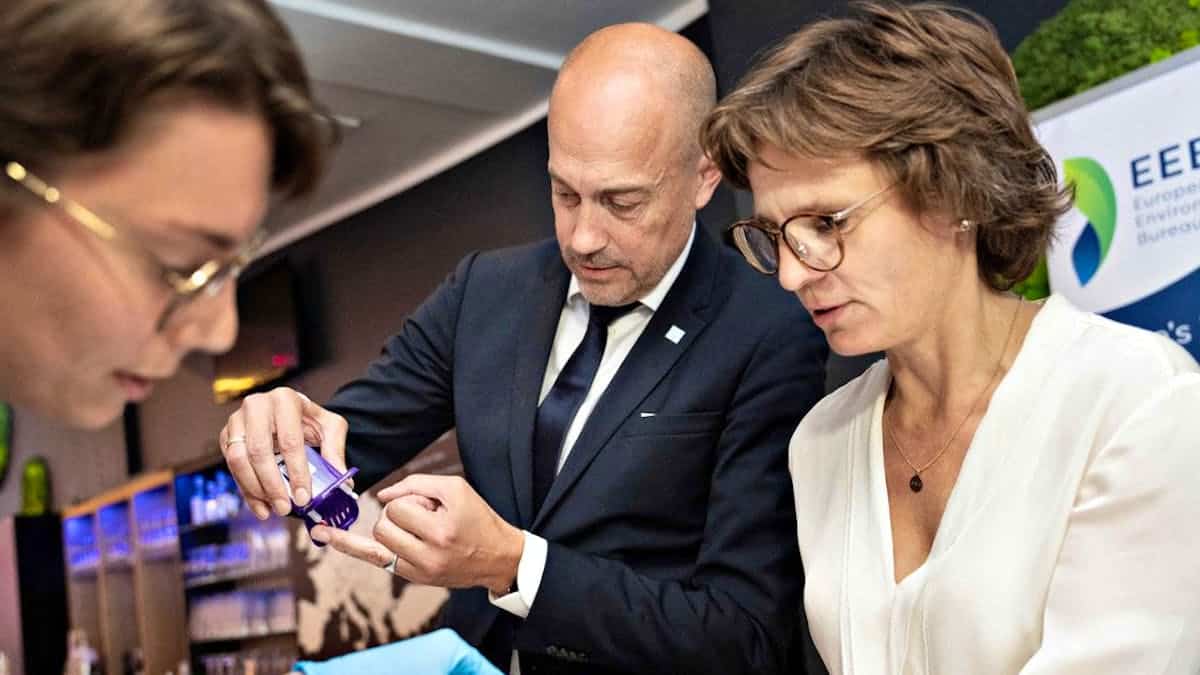To symbolically alert the danger of “eternal pollutants” (PFAS), the European commissioner in charge of the environment, Jessika Roswall, carried out a blood test during the summer of which she revealed the results on Monday.
“I am no exception (…) The results show me that I have many PFAS in my blood, in particular toxic products for reproductive health,” she said, on the sidelines of a press conference on the state of nature in Europe.
According to his team, Jessika Roswall was tested positive for six of the 13 pfas analyzed, three of which are considered toxic to reproductive health, and above the recommended threshold for some of these pollutants.
PFAS, or per-polyfluoroalkylated substances, are a family of synthetic chemicals that take a lot of time to break down.
Cholesterol, cancers, fertility …
Used in many objects (textiles, food packaging, kitchen utensils, cosmetics …) for their non -stick properties, waterproofing or their heat resistance, they can have deleterious health effects: increase in cholesterol levels, cancers, effects on fertility and development of fetus …
The European Union intends to put on the table in 2026 a proposal to ban PFAS in everyday consumer products (pizza boxes, clothing), with exceptions for sectors deemed essential, in the medical field in particular.
The presentation of this bill had been mentioned for the end of 2025 for a time, but negotiations were difficult with manufacturers.
The European Commission also intends to revise its so -called “Reach” legislation which supervises the manufacture and use of dangerous chemicals in Europe.
So far, the European executive planned to present a law before the end of 2025. But there could be late there again.
The text in preparation has just received a negative opinion from an internal body to the EU which assesses the impact studies accompanying the laws.
This committee “asked to re -examine and strengthen our analysis, and we are currently working on it,” reacted Ms. Roswall, without confirming a change of calendar at this stage.
Environmental organizations are already arguing. A postponement would risk “jeopardizing the ambition of this revision”, “pending since 2022”, reacted the NGO Générations Futures.

